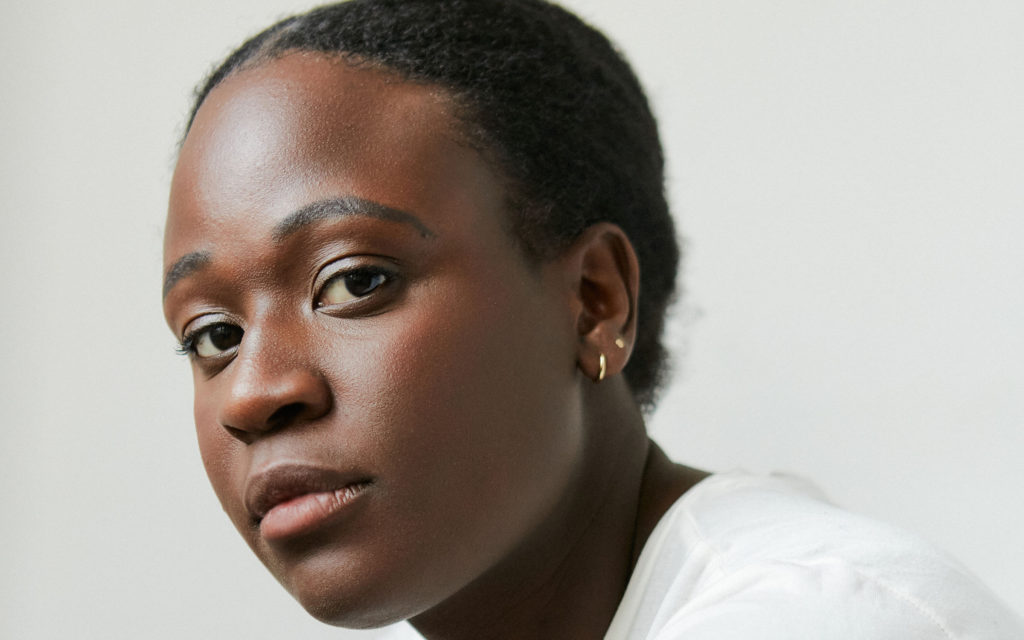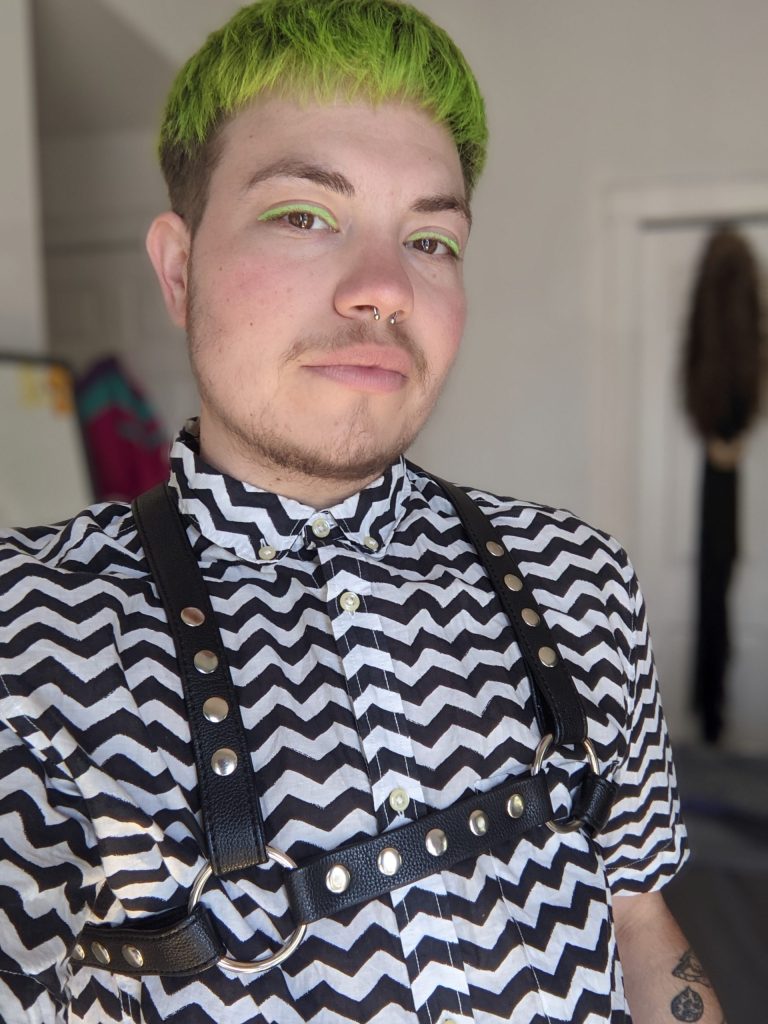Three experts explain why the awards show needs to do better at reflecting Canada’s music industry
Aly Laube – Staff Writer
@godalyshutup
If she had seen her favourite Black artists celebrated through the JUNOS, she might have watched them growing up. But a mostly white, male jury reflects a mostly white award recipient list, and that wasn’t interesting to young Shanique Kelly, who’s now a DJ, organizer, and equity consultant in Vancouver.
Initiated by Canadian publisher Walt Grealis and record label executive Stan Klees, The JUNOs started in 1971 and was named in tribute to Pierre Juneau, the first chairperson of the Canadian Radio-television and Telecommunications Commission (CRTC). The JUNO Awards celebrates 50 years on Sunday, June 6.
In its 50-year run, almost all of the top JUNOS winners have been white, and more than half of them are men. Jurors don’t publicly state their invisible identities so those are difficult to track, but representation for LGBTQ+ folks, people with disabilities, and others are slim as well.
And while more Canadians are starting to question this uniformity, Kelly’s not convinced it’s changing. Ousting the old boys’ club cold turkey won’t be effective, she says, despite a growing public interest in transparency and accountability.
In recent years, awardees have been artists such as Kaytranada, A Tribe Called Red, and Jeremy Dutcher, but that’s a drop in the bucket of a half-century of overwhelmingly representing artists like Bryan Adams and The Tragically Hip.
“When people in power are forced to give up that power or change it’s important that they know why they’re doing it. That’s the difference between seeking out Black and Indigenous artists respectfully and thoughtfully and being tokenizing,” she says.
There needs to be more structural change and reflection among leadership before Black and Indigenous people can safely navigate those spaces, she says. Having BIPOC folks at the top of decision-making processes can lessen that tokenism and signal to creators that the awards are open to them.

According to The JUNOS’ website, that’s what it’s umbrella organization—The Canadian Academy of Recording Arts and Sciences (CARAS)—aims to do.
“CARAS has been taking the time to reflect on our past and while we have made progress over the last few years, it is not enough; we have to be actively anti-racist,” they said in a statement.
Action items they’ve put forward include having a diversity, equity, and inclusion consultant to review internal processes, creating co-delegate programs by collaborating with Black-led/serving organizations and funding memberships for BIPOC music community members.
“Now it is time for us to come forward and be bold. CARAS is committed to the long-term inclusion and amplification of Black voices and a more equitable industry. We must do better for the BIPOC members of the music community. We welcome you to hold us accountable. We acknowledge the hurt, pain, and frustration of the past and present, but we will work to forge a better future for all,” they acknowledged.

After having worked in almost every facet of the music industry in the last 20 years and serving on the JUNOS advisory community when they came to Vancouver a few years ago, Tarun Nayyar says he doesn’t care about the awards show either. Like Kelly, he doesn’t feel like they represent Canadian music, especially from his perspective as a leader in the South Asian music community in B.C. He has run record labels, been in touring bands, organized festivals, and worked on boards for organizations across the province.
But as long as the same white people are at the top of the ladder, the JUNOS won’t be able to change radically enough, says Nayyar. He says they need a change in leadership to formulate more effective outreach strategies.
“At the moment I think they are irrelevant,” he says. “It would be great if I could look to these public organizations and feel like they have our back instead of championing this national music that isn’t even relevant.”
He says the version of Canadian music that centres Nickelback and Shania Twain is outdated and out of step with the music charting online now. As young South Asian youth like Curtis Waters and AP Dhillon continue to blow up, Nayyar suggests awards shows take note and celebrate their talent.
According to Nayyar, who also works as a statistician, JUNOS nominees have been approximately 68 per cent white, outside of the classical, Indigenous, and songwriter categories. About 22 per cent were Black and the remaining 10 per cent are “other BIPOC.”
Representation for Black artists rises slightly in categories like RnB, rap, and reggae, but shrinks in other categories. Compared to the 25 per cent of Canadians who identify as BIPOC, this number still isn’t cutting it, especially for South Asian and Chinese musicians, says Nayyar.
“I can see the JUNOS making the argument of being like, ‘We’re doing a great job. We’re representing Black people and white people make up a lot of the population,’” he says.
“But the big artists that influence the world are all people of colour. Those are all people pushing Canada forward in music, and the fact that we’re supporting artists that aren’t really relevant, it just seems off to me. The fact that none of the South Asian music industry is represented here, it just strikes me as a miss.”
As a member of the JUNOS electronic music committee—as well as a Project Manager, Curator, Mentor, Community Advocate, Education & Research Facilitator—Finley Parkes agrees.
“I never really felt like they were representative of Canadian music communities … so it’s not something I’ve cared about,” says Parkes, a settler who has worked at festivals and shows across the province. “It’s not something I’ve thought about until very recently when I began to understand the power structures in the awards and music industry.”
Parkes joined the JUNOS’ electronic music committee in the fall in attempts to try and change its structure from the inside. They spent the season going through submissions, judging, and researching the organization of the JUNOS itself.
One of the first things they noticed when researching past winners and nominees was that the underground music category was “overrun by EDM made by white kids who have no understanding of the history of that music,”
After several meetings with JUNOS executives, they suggested new guidelines to submissions and judging practices, supported Sydney Blue with her push for a new category to properly represent electronic music, as well as potentially refunds for some artists.

“The way it’s set up just isn’t sustainable. You’re bringing on judges that are not being paid, run by a committee that is not being paid, and relying on committee members to be consultants and tell them what’s going on,” Parkes says. “You can’t rely on your committee members to be your consultants. That’s not what they’re signing up for when they join this committee.”
Making artists pay to enter perpetuates a cycle of representing artists who are already famous, adds Parkes. That makes it hard for anyone disadvantaged by white, cisheterosexual, colonial, patriarchal capitalism to compete.
Rather than waiving the submission fee for everyone, Parkes recommended the JUNOS set up a fund for independent artists and labels or marginalized people so they don’t have to pay for those fees.” Artists like Drake, who can afford to do so, should continue to pay the fee, says Parkes.
They say there’s a lot of opportunity to position artists as leaders and showcase to the world “what Canada actually has to offer.” That means supporting emerging artists, not established ones who are already known.
“I think it could inspire people to get more involved in the music industry,” they say.
“If they’re seeing more people getting noticed and not seeing the same names all the time, don’t you think that would make you want to be part of that community? When I see the same names over and over again, I just think, ‘That’s untouchable.’”
Representatives from The JUNOS were not able to be reached before deadline.
The 50th Annual JUNO Awards take place on Sunday, June 6, broadcasting nationwide on CBC TV, CBC Gem, CBC Radio One, CBC Music, CBC Listen, globally on cbcmusic.ca/junos, and live-streamed on CBC Music’s Facebook, Twitter, and YouTube pages at 8 p.m. ET / 5 p.m. PT.

Aly Laube is an event producer, journalist, and musician living on unceded Coast Salish territories. She is a radio and freelance journalist and the associate director of Cushy Entertainment as well as the front woman of the local band Primp. In her spare time, she freelances, watches horror movies, and panics about the ever-looming threat of climate change. As a queer mixed woman with a glaring inability to keep her mouth shut, Aly is very often in the throes of either rage or passion.
In general, you can catch Aly doing too much all the time. She’s reachable at alaubefreelancing@gmail.com.




